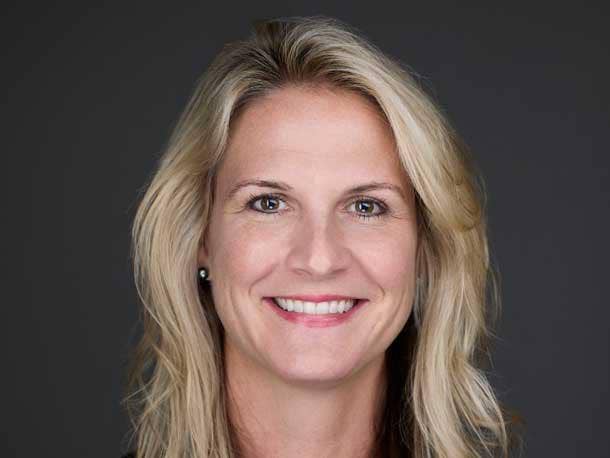Qumu CEO On How On-Demand Video And Analytics Are Changing The Future Of Video Collaboration
Qumu CEO Rose Bentley, who previously worked as the sales and operations leader for Cisco-owned CloudCherry, talks to CRN about why the asynchronous video engagement platform is great upsell or add-on for collaboration-focused partners and businesses.

Meet Qumu
Videoconferencing tools like Teams, Webex and Zoom replaced the conference room during the onset of the COVID-19 pandemic when millions of employees all over the world were working and collaborating from their home offices. But now, collaboration is about taking a hybrid approach — not about simply returning to the conference room.
Enter video engagement provider Qumu. The company comes to the market with its enterprise platform that can create, manage, distribute, and measure the success of webcasts, virtual events, and employee collaboration and training through analytics. The 20-year-old company specializes in asynchronous, secure video, whether it’s large-scale, company-wide town halls, or executives sending out short video messages to their teams via the company’s existing collaboration team. Qumu counts players like open-source video platform provider kaltura as one of its most direct competitors and many large brands, including Bayer, Kroger and Mastercard, as its customers.
Rose Bentley, Qumu’s former chief operating officer who joined the company in 2021, rose to the CEO seat in April. She’s no stranger to the collaboration space or the channel, having worked on Cisco’s Webex Experience Management team after the tech giant acquired CloudCherry, a company that Bentley was instrumental in “growing from nothing” in under three years as the organization’s North American Sales and Operations leader. In her short tenure with Qumu so far, she’s been heads-down focused on building repeatable sales, while transforming the company from on-premises to the cloud, Bentley said.
To that end, Qumu is currently building out a robust partner program that launched in Q3 2021 that is targeting resellers and soon, agent partners. Bentley, who is currently leading channel efforts for Qumu, is working with her team to ensure partners have all the enablement they need, because, as she says, “deals create partners.”
Bentley talked to CRN about the company’s growth in the channel, the kinds of partners the video provider is seeking out and what makes Qumu a valuable add-on to a businesses’ collaboration strategy. Here are excerpts from the conversation.

Tell us about Qumu’s new partner program
We hit the ground running with our [new channel program] and we focused on what the partner experience is that we want to provide. I really elevated the importance of our customer experience and our partner experience and frankly, our partners are our customers when you look at any referrals we’ve won, or reasons that we get chosen in a competitive bake-off between Kaltura — it’s because of our support for our customers. Our teams go above and beyond for customers, more than any video platform company out there, which really gives us the competitive edge. And I want to make sure that that level of service and expectation for our customers is also met by our partners. So that was our first North star and how do we how do we create that? And then from there, how do we start structuring the training, the enablement, the deal registration, and the ongoing access to the portal to enable the partner to be successful as they started scaling with us?
If you look at my background, I have always been on the partner ecosystem side when I’ve been with a large enterprise company. I’ve been really focusing with the team on how to embrace partners and make it part of the business strategy. The good news is that over the last six to eight months, there’s been traction, so that is how we are going to market — through the partner ecosystem. We’ve [in April] launched a very exciting partnership with AT&T Business [for managed streaming services], which is bringing together partners in an ecosystem play that creates a solution that differentiates us that our partners can’t get anywhere else.
Who are the right partners for Qumu?
That’s been where I’ve been really focused recently — what are the right partners for us? I believe that deals make partners. [Solution provider] GovSmart is a big reseller partner. We are a hyper-secure company, and the government needs to invest in [video]. I’m also looking at [OEM] partners because we just work well and integrate well with OEM strategies. So, the deal with AT&T was [an example] of that strategy for us, which is “Powered By Qumu,” which is very important for us. We really focused on the OEM and resell partners. With TD Synnex, we actually went through a very large process with them [in 2021] and we are the exclusive video provider to them in their ecosystem of 150,000 resellers. [We also just talked to [master agent] Telarus about a strong relationship with them exclusively on the agent side. We’re just getting started with partners!

How does the analytics piece differentiate Qumu’s video offering?
This is something we’ve been doubling down on from a product perspective. We have all this information — who’s searching for content? Where are they? How long do they want video to be — do they prefer three-minute videos or five-minute videos? These are the things that run through an executive’s mind right, when they’re creating a unified message that they want to distribute out to their teams. I think the power and future of video is changing. What I mean is, asynchronous video [lets users] be in San Diego or Milan, at any time, and it doesn’t necessarily matter. I think that’s changing the video market from where it has been to where it’s going.
With asynchronous video, analytics start to become more important. So, [for example], you can’t actually see all [attendee] boxes and how many people were actually logged in. You’re now depending on analytics to tell you where and how your message is being received. So [analytics] is, I think, a huge differentiator. [Businesses] have all this video and once they categorize it, then what? And I think that’s exactly where we’re meeting the market need.

How can partners wrap their own services around Qumu and how is the company enabling partners?
We’re very channel-friendly that way. We launched our channel program that way because we are, a lot of times, an upsell or an add-on to a current contract or relationship.
One thing I’ve really shifted the marketing team to focus on is how do we enable a partner and how do we give them the access they need and the dedicated [resources] they need? I think the biggest thing is just enablement and allowing the team to focus on creating a repeatable sale or repeatable process. Ninety percent of my marketing [team] is focused on just that. I think this is what differentiates a lot of partner programs from the good to the great ones is the enablement. If partners don’t know your “better together” message and you walk out thinking: “This was a great meeting!” And then you pull them aside at lunch and ask: “What does Qumu do?” and they can’t answer that question, that’s a problem. And that happens all the time with partners and vendors. That’s something we’re really trying to defend against with the enablement and repetition. Repetition of the need for enablement and what we’re delivering to them with our “better together” is important.
Why is now the time to focus on the channel?
[Qumu] was doing about 10 to 15 percent of [its business through the channel] when I first joined last year. We actually grew that to now over 30 percent of our overall revenue coming through the channel, and I expect to add a lot more to that.
I truly believe now is the time because when we were going after that big opportunity with TD Synnex, until about seven months ago, they didn’t have a video engagement platform in their ecosystem for their partners. But really, that makes sense because all of a sudden, we have this rise in video and what do we do with it? People are saying: “we need to be more strategic about video. This is here to stay. It’s a new hybrid environment and we’re not all going back to the office.” Some companies are just kind of waking up to some of that. [Qumu] is not like GoToMeeting and Zoom and WebEx, and [partners] don’t have someone like us that’s being more strategic about video.

Does Qumu have a channel chief and what are the goals for the first year of the channel program?
I am! You’re looking at her. It’s such an important initiative that I took it on, especially with my background as a chief operating officer. It’s a small but mighty team. I’ve been managing right now because it’s such a critical strategy for the company [and] I think we can hold off until we can scale to get a channel chief.
By far, the goal is to create a world-class partner program. If we don’t do that, everything else fails. Number two, create a world-class partner program. We know how this works, right? The partners go to where it’s easy, it’s streamlined, and [the program] gives them the ability to go out on their own and not have to lean on the [vendor] and grow their business and margins. So, by far, that would be my number one priority. The second part is, video has become such a such a need. It’s just so imperative for businesses [which are trying to figure out]: “What is our video strategy, and can we have a Qumu help us search for a video, for example, when did [Bentley] talk about the future of video?” You can’t do that in Zoom or Teams. I think it’s about bringing the video to a lot of companies that just haven’t really been thinking about the asynchronous video strategy.